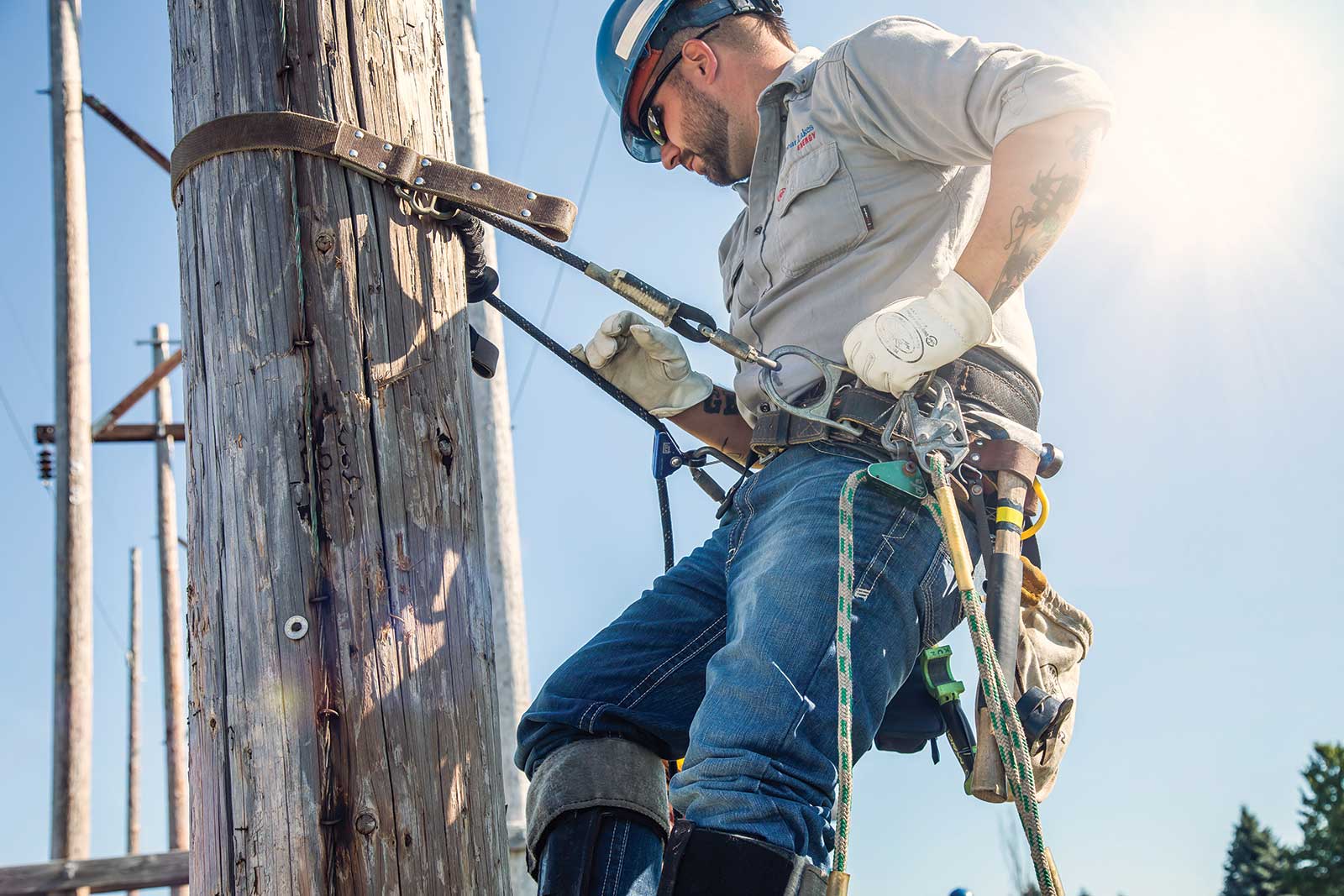The job of an electrical lineworker is physically demanding, can involve long hours in emergency situations, and requires the utmost concentration and focus on safely dealing with life-threatening voltages. Often referred to as the first responders of electricity, lineworkers are vital to ensuring the lights stay on for all.
Because of their essential role, ever-changing technological advancements, and growing skill set needs, lineworkers need the most advanced training to gain the skills and experience to become masters in their field. In Michigan, every electric cooperative and most municipal utilities receive this training from the Joint Michigan Apprentice Program (JMAP) located at the Wolverine Training Center in Lake City.
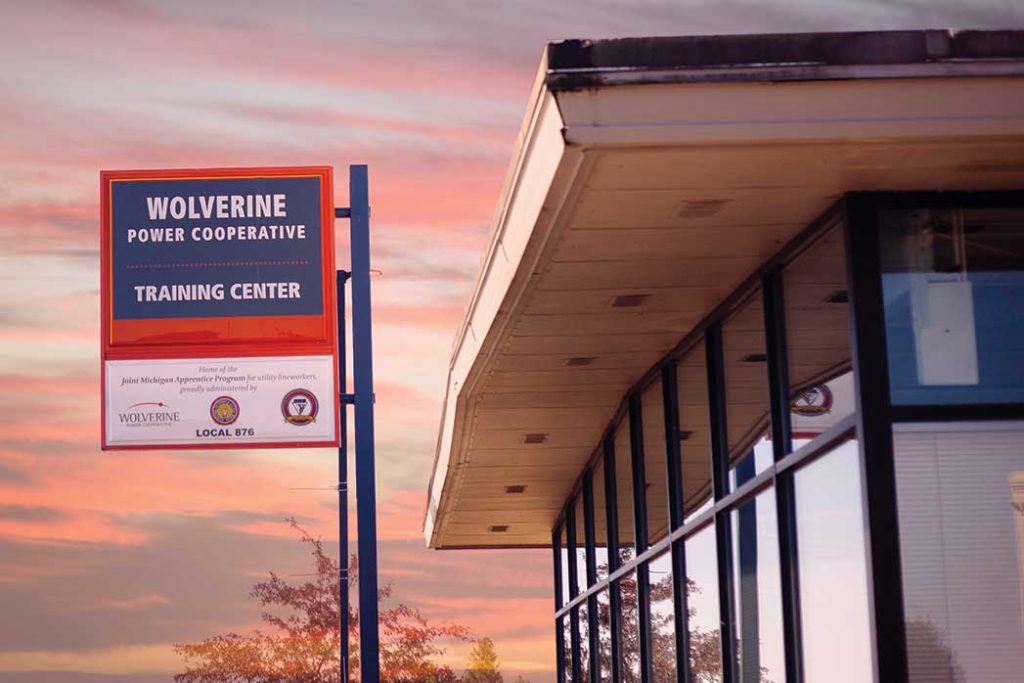
“Having the Wolverine Training Center has been instrumental in bringing the overall quality of the apprentices to the next level,” said Mike Appleford, senior training advisor, Northwest Lineman College. “Developing a well-trained, sustainable workforce is an essential piece to providing safe, reliable energy to homes and businesses.”
The JMAP is a partnership between Wolverine Power Cooperative, the International Brotherhood of Electrical Workers Local 876 (IBEW), and Northwest Lineman College (NLC)—an industry-leading educational institution that provides pre-apprentice, apprentice, and journey-level training for hundreds of companies throughout the United States and internationally.
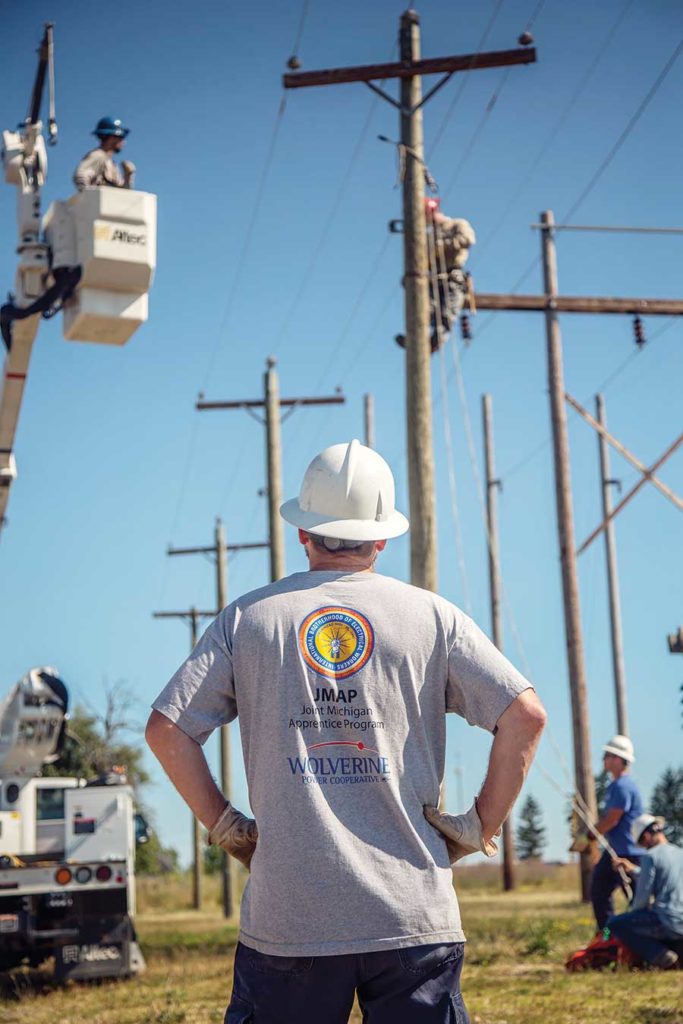
“The instructors that NLC brings to the JMAP are among the best in the world,” said Appleford. “Our instructors have a passion for the trade and for teaching others.”
The JMAP, founded in 2017, is a Department of Labor certified program that requires apprentice lineworkers to complete 7,000 hours of on-the-job training, plus eight weeks of the classroom and hands-on skills testing over four years. The first-class instruction and experience take the apprentice from the basics of learning to climb and work from elevated positions through a deep understanding of electrical systems, including transformers, protective grounding, and utilization of specialized equipment. And, most importantly, keeping the safety of the apprentices, their fellow lineworkers, and the communities they serve at the forefront of their minds.
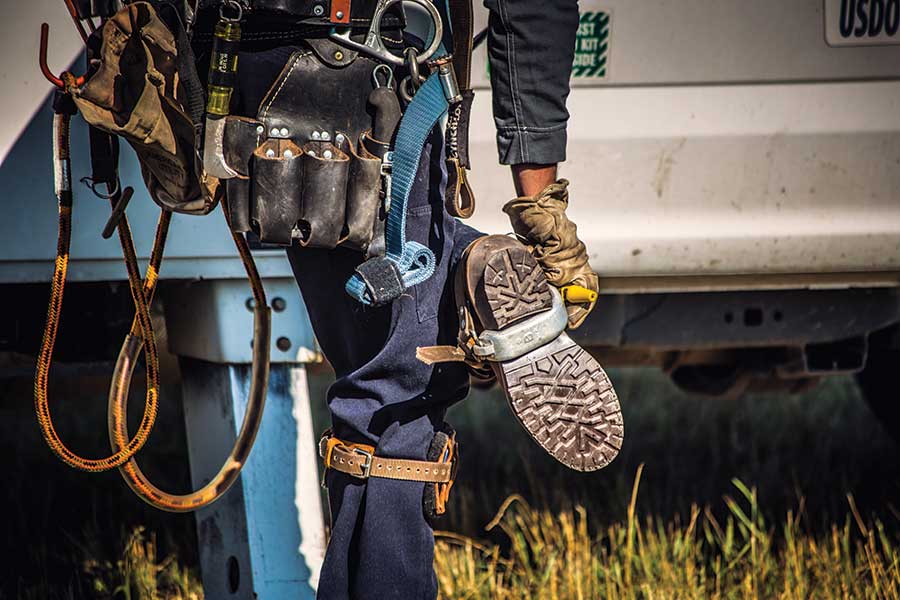
“The training has been excellent and offers a great deal of information with both in-class and hands-on education,” said Nick Kuz, lineman with Great Lakes Energy and an apprentice from the JMAP. “I feel confident in the amount of training I have received to advance in my career; it’s been great to expand my knowledge and be able to bring it back to the rest of my crew.”
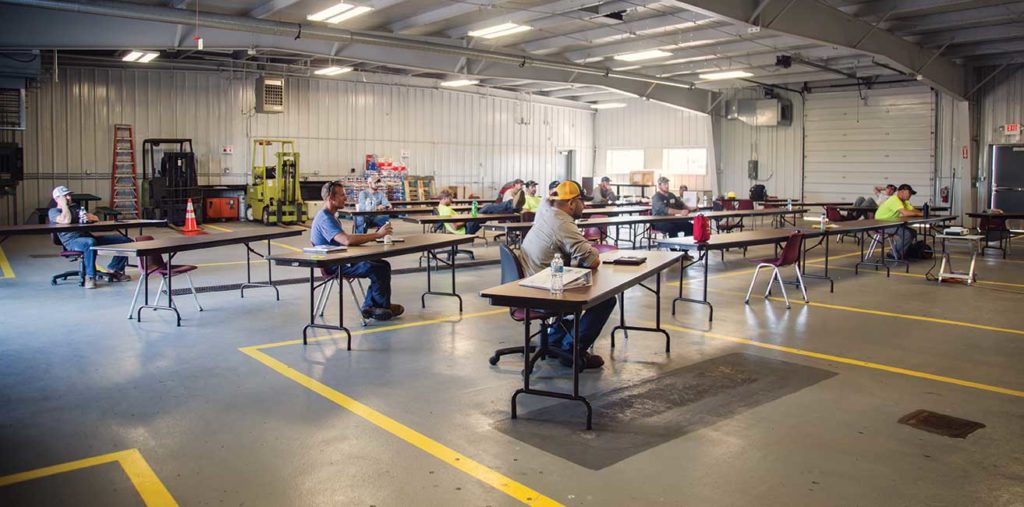
While JMAP is proud to train the utility lineworkers of the future, the first step to becoming a lineworker—and entering the JMAP program—is to be hired as an entry-level apprentice at an electric utility. Once hired, the utility provides training in the field from senior lineman and through an apprentice program like JMAP.
Becoming an electrical lineworker is a rewarding career that serves an essential need for cooperative communities. Interested in a career? If you love being outdoors, working with your hands and are committed to learning a trade on the job, then becoming a lineworker might be the career for you. Visit your cooperative’s careers page to learn about current opportunities.

